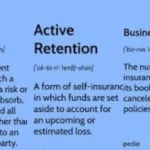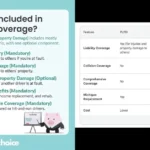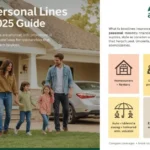Car wrapping has gained immense popularity in recent years as a customizable and cost-effective way to change the appearance of a vehicle without the permanence or expense of a new paint job. Whether for aesthetic purposes, protection, or advertising, a car wrap can transform a car’s exterior while also offering additional benefits like protection from wear and tear. In this guide, we will explore everything you need to know about car wrapping, including the costs involved, the benefits, and the step-by-step process of wrapping a car.
What is Car Wrapping?
Car wrapping is the process of applying a layer of vinyl film to the exterior of a vehicle. This film can be of any color, pattern, or texture, allowing for complete customization. Car wraps come in various finishes, such as matte, gloss, satin, metallic, carbon fiber, and chrome, giving vehicle owners a wide array of design options to suit their personal style.
The vinyl film can be applied to the entire vehicle or only specific parts like the hood, roof, or mirrors. Car wraps can also be used for branding, as they are an effective way for businesses to advertise on company vehicles.
Why Choose Car Wrapping?
There are several reasons why car owners opt for wrapping their vehicles over other methods like repainting:
- Cost-Effective: Car wrapping is generally less expensive than a full paint job, making it an attractive option for those looking to refresh their car’s look without breaking the bank.
- Customization: Car wraps offer limitless design options, from simple color changes to intricate designs and textures, allowing for unique, personalized appearances.
- Non-Permanent: Unlike painting, wraps can be removed without affecting the original paint. This is perfect for those who want a temporary change or wish to preserve the car’s original color for resale value.
- Protection: Vinyl wraps act as a protective layer, safeguarding the original paint from UV rays, scratches, and minor abrasions. This can preserve the car’s factory finish and maintain its value.
- Advertising: For businesses, a car wrap is a moving billboard. Custom graphics or logos can be added to a fleet of vehicles, turning them into powerful marketing tools.
Types of Car Wraps
Car wraps come in different types and styles, each offering various benefits depending on the desired outcome.
- Full Wrap: A full wrap covers the entire exterior surface of the vehicle. This is ideal for complete color changes or intricate designs that need full coverage.
- Partial Wrap: A partial wrap only covers specific parts of the car, such as the roof, hood, or side panels. This is often chosen to accent specific areas of the car or for a more budget-friendly option.
- Color-Change Wrap: A color-change wrap is specifically designed to change the overall color of the car. This is often used for aesthetic purposes.
- Textured Wraps: These wraps simulate different textures, such as carbon fiber, brushed metal, or leather, giving the car a unique look and feel.
- Printed Wraps: Custom graphics or images can be printed onto vinyl wraps. This is typically used for commercial vehicles looking to advertise.
- Matte, Gloss, and Satin Finishes: These finishes allow for subtle but stylish changes in the vehicle’s appearance. Matte gives a smooth, non-reflective finish, gloss offers a shiny, reflective surface, and satin strikes a balance between the two.
The Cost of Car Wrapping
The cost of wrapping a car depends on several factors, including the size of the vehicle, the type of wrap, the complexity of the design, and the quality of the materials used. On average, car wraps can cost anywhere from $1,500 to $5,000 or more, depending on these variables. Here’s a breakdown of factors that affect the pricing:
1. Vehicle Size
Larger vehicles, such as trucks, SUVs, and vans, will require more material and labor, increasing the cost. Smaller cars, such as sedans and hatchbacks, will generally be less expensive to wrap.
2. Type of Wrap
Full wraps are more expensive than partial wraps due to the amount of material required and the time needed to cover the entire vehicle. Partial wraps or smaller accents may cost as little as $500 to $1,500.
3. Wrap Material Quality
High-quality vinyl materials from reputable brands like 3M or Avery Dennison are more expensive, but they provide better durability and finish. Cheaper vinyl may not last as long and can result in a lower-quality appearance.
4. Complexity of the Design
A simple color change will be more affordable than a custom design with intricate graphics, patterns, or textures. Custom printed wraps or those requiring detailed alignment will require more labor and expertise, driving up the cost.
5. Installation
Professional installation is essential for a seamless and durable wrap. While some may attempt a DIY car wrap, it’s a meticulous process that requires experience to avoid bubbles, wrinkles, and misalignments. Professional labor costs can range from $500 to $2,000, depending on the complexity and location.
Additional Costs to Consider
Beyond the cost of the wrap itself, there are a few additional factors that may affect the total price:
- Prep Work: Before applying the wrap, the car’s surface needs to be cleaned and prepped. Any dents, rust, or chips in the paint must be repaired, as these imperfections can show through the vinyl wrap. Prep work may add $200 to $500 to the total cost.
- Removal of the Wrap: If you ever decide to remove the wrap, it will require professional labor to avoid damaging the underlying paint. Wrap removal can cost anywhere from $500 to $1,000.
- Maintenance: Although vinyl wraps are durable, they require some maintenance to preserve their appearance. You should avoid automatic car washes and use soft microfiber cloths to clean the vehicle. Occasional reapplication of protective coatings or repairs to damaged areas may also add to the cost over time.
Car Wrapping Process
The process of wrapping a car involves several detailed steps that ensure a flawless finish. Here’s a look at the entire process:
1. Design and Planning
Before the wrap is applied, the design phase is crucial. This involves selecting the color, finish, or custom graphics that the car owner desires. If a custom design is being printed, accurate measurements of the vehicle are taken to ensure the graphics fit correctly.
2. Cleaning and Surface Preparation
The vehicle is thoroughly washed to remove dirt, grease, and contaminants. Any imperfections, such as scratches, dents, or rust, are repaired to ensure a smooth application surface. A clean and well-prepped surface is essential for the vinyl to adhere correctly.
3. Application of the Wrap
Once the car is prepped, the vinyl wrap is carefully applied in sections. The wrap is stretched over the car’s surface and adhered using a squeegee to eliminate air bubbles. This process requires precision, especially around curves, edges, and seams.
4. Trimming and Detailing
After the wrap is applied, the excess vinyl is trimmed away, and the edges are tucked in for a seamless appearance. Heat is often applied to the wrap to activate the adhesive and set the material in place. This step ensures a long-lasting bond between the vinyl and the vehicle’s surface.
5. Final Inspection and Quality Control
The last step is to inspect the wrap for any imperfections, such as bubbles or misalignments. If any issues are found, they are corrected. The vehicle is then given a final wipe-down to ensure a pristine finish.
Lifespan of a Car Wrap
A high-quality car wrap can last anywhere from 3 to 7 years, depending on the material, exposure to elements, and how well it is maintained. Vinyl wraps are durable but may wear out faster if exposed to harsh conditions, such as prolonged UV exposure, extreme temperatures, or abrasive cleaning methods.
Car Wrapping vs. Repainting
When considering a car wrap, many people wonder how it compares to traditional repainting. Both have their pros and cons:
1. Cost: Car wraps are typically less expensive than a high-quality paint job. A professional paint job can range from $3,000 to $10,000, whereas wraps are more budget-friendly, especially for custom designs.
2. Time: Wrapping a car takes less time than a full paint job. Most car wraps can be completed within 1 to 3 days, while a professional paint job can take up to 2 weeks due to the drying and curing time involved.
3. Customization: While paint offers fewer customization options, wraps allow for intricate designs, logos, textures, and finishes that would be difficult or impossible to achieve with paint.
4. Reversibility: One of the biggest advantages of a car wrap is that it can be removed easily, restoring the car to its original condition. Repainting is a permanent process and may lower the vehicle’s resale value, especially if done poorly.
Conclusion
Car wrapping is an excellent option for those looking to change their vehicle’s appearance, protect the original paint, or promote their business through custom graphics. The cost of wrapping a car varies depending on factors like the type of wrap, vehicle size, and design complexity. Although the price can range from $1,500 to $5,000 or more, it is often a more affordable and flexible alternative to repainting.
When done professionally, car wraps provide stunning results that can last for years, offering vehicle owners the ability to showcase their personal style or promote their brand in a unique way. Whether for aesthetic enhancement or practical benefits, car wrapping is a highly customizable and cost-effective solution worth considering.











